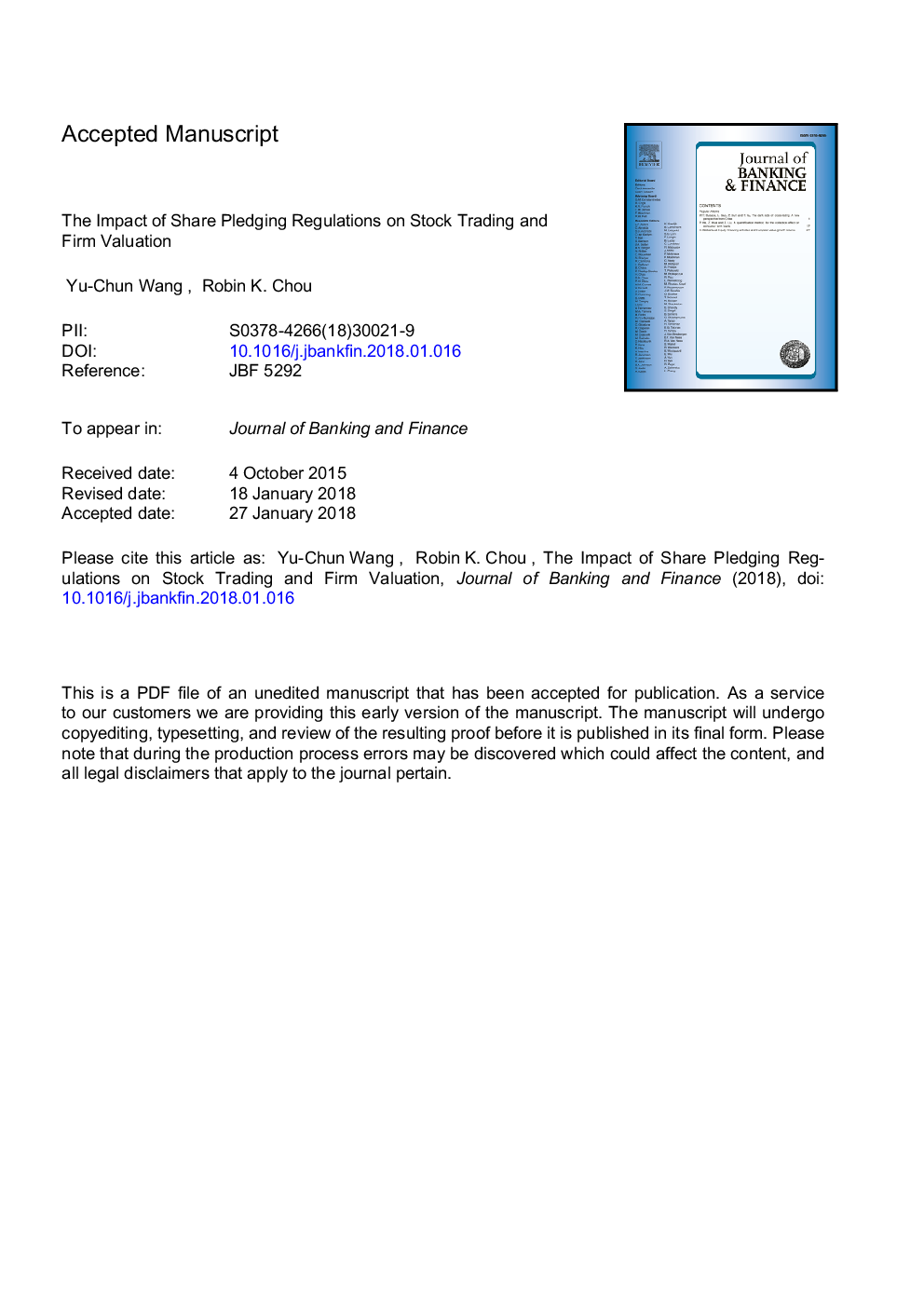| Article ID | Journal | Published Year | Pages | File Type |
|---|---|---|---|---|
| 7356577 | Journal of Banking & Finance | 2018 | 39 Pages |
Abstract
Previous research suggests that insiders' shareholding pledges are associated with agency problems. However, the ways investors evaluate and react to such behaviors are less clear. By investigating stock market reactions to three regulatory changes related to share pledging in Taiwan, this study shows that firms whose directors make share pledges experience significantly higher stock returns around these events, compared with those without such directors. Institutional investors increase their shareholdings of pledging (i.e., less compliant) firms after the passage of the 2011 amendment to the Company Act, indicating that reduced agency problems increase institutions' willingness to hold shares of less compliant firms. The results for stock trading and firm valuation also are more significant for firms with controlling shareholders, which are more likely to be expropriated. These results are consistent with the alignment hypothesis, in which firms that are less compliant with the rules benefit more from legislative changes. They also offer important implications, by showing how adjusting legal regulations can help improve investor protections.
Keywords
Related Topics
Social Sciences and Humanities
Economics, Econometrics and Finance
Economics and Econometrics
Authors
Wang Yu-Chun, Chou Robin K.,
